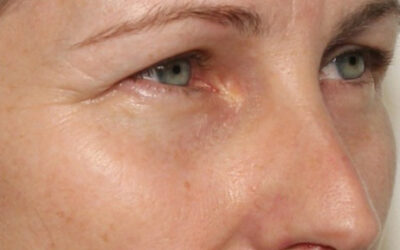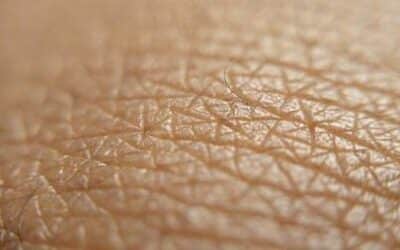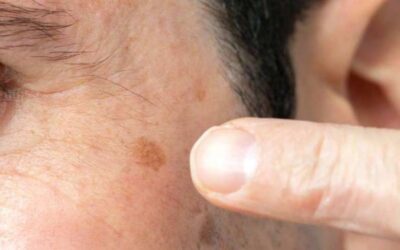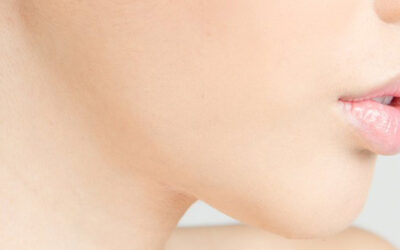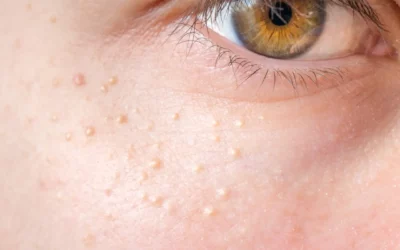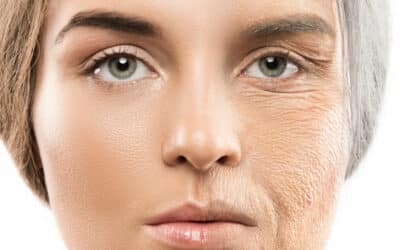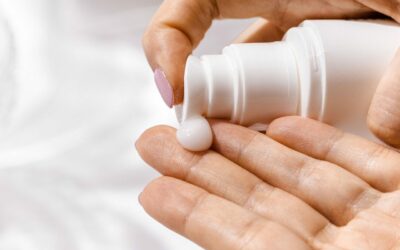Menopause is not an illness, and it does not mean the end is approaching, you have still got as much as half of your life to go! It’s a fact of life, and every woman will go through menopause, usually in her early to mid-’50s. In addition to triggering symptoms such as hot flashes and mood swings, menopause can significantly affect your skin too, causing dryness, adult acne and even thin, translucent skin that is less than elastic.
When menopause occurs, the body experiences a drop in production of the female hormone estrogen. Not only does estrogen affect the whole body, but it also plays an important role in the health of your skin, promoting circulation, the production of collagen and a healthy glow.
A common symptom of menopause is drier than normal skin, due in part to a decline in estrogen which will then decrease collagen. Once hormone levels begin to dip, the oil glands are not stimulated in the same capacity as before, causing less oil to be produced and the skin to become drier. Often with menopause, the cholesterol levels rise, and statins like Lipitor are taken. There is cholesterol in the skin and statins can cause dehydration from the loss of lipids, resulting in very dry and itchy skin.
Dry skin and wrinkles go hand in hand. Since there is a decrease in estrogen and collagen production, which leads to dry and dehydrated skin, it’s no surprise that wrinkles begin to form or get worse around the time of menopause. When skin is dry it, it thins out because collagen levels are depleted and there is less moisture to keep it plump.
Once the skin is less able to retain moisture and produce an adequate amount of skin lubricating oil, the underlying fat layers begin to thin out. As facial fat starts to diminish, thinning of the skin can occur, which may cause it to take on a bluish tint and look translucent, thus calling attention to changes in the midface like dark circles and sunken cheeks. In addition, more mature skin tends to be pale, bruise more easily and may be more prone to allergic reactions and irritations.
It seems counter-intuitive that adult acne can occur as hormone levels taper off. But truth be told, acne is as common, although usually temporary, occurrence among women experiencing menopause. Menopausal acne occurs from increased levels of progesterone, which stimulates the sebaceous glands and results in excess oil, essentially overriding estrogen.
There are easy ways to keep your skin healthy during menopause. Keep your body internally and externally hydrated. Topically applying treatment creams can help hydrate the skin from the outside in, but it’s just as important to hydrate from the inside out. Omega-3 fatty acids, which can be found in foods like salmon and nuts, are absolutely vital to prevent the skin from becoming dry and itchy. And we all know that at least eight glasses of water a day are also essential.
Topically a retinol serum or cream may be used as it will help to address clogged pores and also stimulate collagen production and thereby increase the thickness of the skin. There are also many serums that may assist the dryness without leaving the skin feeling as if it is covered in axel grease. Collagen stimulating fillers such as Juvederm or Restylane may also assist by giving sunken areas and wrinkles a gentle and natural plumping appearance. This can only be performed by either a doctor or a nurse.
Menopause does not have to be the end of our skin’s health and radiance. Managed both internally and externally with the assistance of key professionals such as aestheticians, naturopaths, dietitians and doctors our skin can still reflect the youth we feel on the inside when we look in the mirror.

